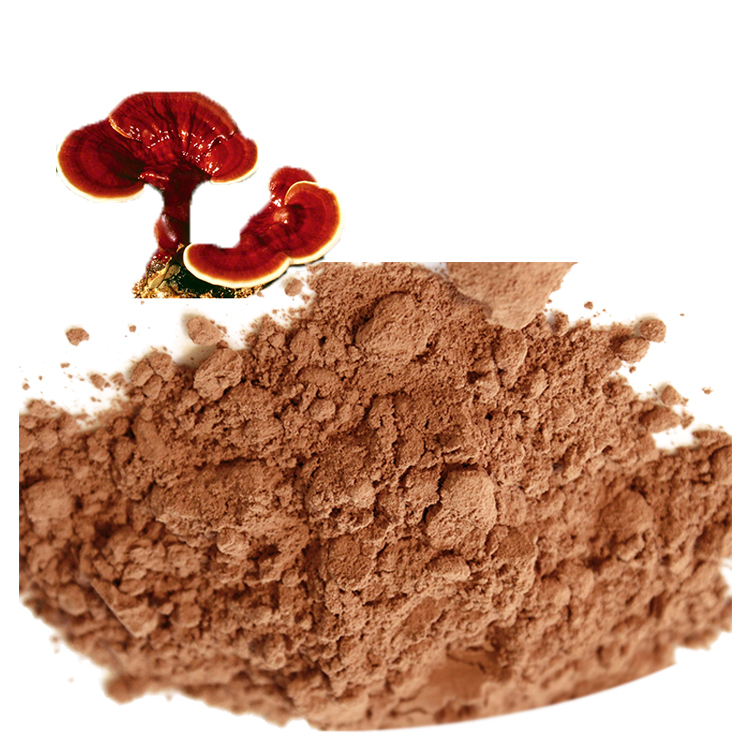The wholesale procurement of functional ingredients such as Ganoderma extract is a critical process for nutraceutical brands, food & beverage manufacturers, contract formulators, and global distributors. As demand for medicinal mushrooms continues to surge, B2B buyers are seeking transparent, reliable, and cost-effective ways to source high-quality extracts. This guide demystifies each step in the procurement journey, from initial inquiry to successful order fulfillment, providing actionable recommendations for purchasing Ganoderma lucidum extract, Lingzhi extract, and Reishi mushroom extract at scale.
1. Initial Inquiry and Defining Requirements
The procurement process begins with a clear definition of your needs. Buyers should specify:
Product Form: Powder, granule, capsule, or liquid extract.
Active Content: Standardization (e.g., 30% polysaccharides, 2% triterpenes, etc.).
Intended Use: Nutraceutical, food, beverage, pet health, or cosmetics.
Certifications: Organic, GMP, HALAL, KOSHER, Non-GMO, and others.
Quantity and Frequency: Single shipment, ongoing supply, MOQ requirements.
Drafting a detailed Request for Quotation (RFQ) or product inquiry ensures suppliers can respond accurately and expediently.
2. Supplier Identification and Qualification
Reliable sourcing starts with supplier research. Evaluate potential suppliers using these criteria:
Company Background: Years in business, export experience, industry reputation.
Product Portfolio: Range of mushroom extracts offered.
Certifications: Third-party documents for Ganoderma lucidum extract, including organic, GMP, etc.
Factory Audits: Physical or virtual visits, production capacity, QA systems.
References and Track Record: Feedback from past or current B2B clients.
Shortlist suppliers who meet your technical and compliance needs, then initiate contact with a tailored inquiry.
3. Sample Evaluation and Quality Assurance
Before committing to a large order, request product samples for evaluation. Key steps include:
Documentation Review: COA (Certificate of Analysis), SDS (Safety Data Sheet), TDS (Technical Data Sheet).
Laboratory Testing: Verify active compounds, absence of contaminants, moisture, and particle size.
Organoleptic Assessment: Color, taste, solubility (for food and beverage applications).
Compliance: Confirm alignment with import regulations in the destination market.
This stage is critical for qualifying Lingzhi extract for your intended product application and ensures you meet quality expectations.
4. Price Negotiation and Terms
Armed with sample data and supplier quotes, proceed to negotiation. Consider:
Unit Price: Based on volume, grade, and market trends.
Payment Terms: T/T, L/C, partial deposit, net payment after delivery.
Incoterms: FOB, CIF, DDP, or EXW—define responsibility for shipping, insurance, and customs.
Lead Times: Production and shipping timelines, stock vs. custom manufacturing.
Discounts and Rebates: For bulk or repeat orders.
Transparent communication helps establish trust and can secure preferential terms for your business.
5. Order Placement and Documentation
Once terms are agreed, formalize the order with a Purchase Order (PO) or contract. Key documents include:
Proforma Invoice: Details price, product specs, quantity, and terms.
Supply Agreement: Outlines responsibilities, dispute resolution, confidentiality, and penalties.
Quality Standards: Attach COA, spec sheet, and any third-party certifications.
Regulatory Documents: MSDS, allergen statements, GMO status as required by your country’s law.
Confirm all details in writing and review before advancing payment.
6. Production, Inspection, and Logistics
Monitor the supplier’s production schedule and request real-time updates. Best practices:
Production Updates: Key milestones, batch testing, photos/videos.
Pre-Shipment Inspection: By buyer, third-party agency, or video call.
Logistics Planning: Choose air, sea, or land transport; arrange insurance as needed.
Customs Preparation: Ensure all import paperwork, tariffs, and regulatory filings are complete for smooth clearance.
Efficient coordination at this stage prevents delays and minimizes costs.
7. Receipt, Quality Verification, and Order Fulfillment
Upon receipt, perform quality control checks:
Physical Inspection: Verify packaging, labeling, and integrity of the goods.
Lab Testing: Cross-check key bioactive content, safety, and compliance.
Inventory Management: Log into your system and prepare for production or resale.
Any discrepancies should be addressed immediately with the supplier per the supply agreement.
8. After-Sales Support and Long-Term Partnership
Reliable after-sales support is the hallmark of a trusted supplier. Expect:
Responsive Communication: For queries, technical support, or claims.
Replacement or Credit: For non-conforming or damaged batches.
Ongoing Collaboration: Updates on new products, process improvements, and regulatory changes.
Building strong relationships facilitates repeat business, favorable terms, and joint problem-solving in dynamic global markets.
9. Risk Management and Continuous Improvement
Wholesale procurement of Reishi mushroom extract carries risks—market volatility, regulatory changes, and supply chain disruptions. Mitigate risk by:
Diversifying Suppliers: Avoid sole reliance on a single partner.
Regular Audits: Maintain compliance and quality.
Market Monitoring: Stay updated on trends, pricing, and standards.
Continuous process improvement ensures your procurement function remains robust, agile, and aligned with business goals.
Conclusion
The wholesale procurement of Ganoderma extract, Ganoderma lucidum extract, Lingzhi extract, and Reishi mushroom extract demands expertise in negotiation, quality control, regulatory compliance, and supplier management. By following a structured, detail-oriented approach, businesses can secure safe, high-quality, and competitively priced ingredients that fuel innovation and growth in the health and wellness industry.
Read More:
Real Consumer Feedback on Ganoderma Extract: Honest Reviews & Global Insights
Thirty Days on Ganoderma Extract: What Changed in My Body?
Precautions and Contraindications When Taking Ganoderma Extracts: A Comprehensive Guide
Hangzhou Molai Biotech Co., Ltd has supply capacity 1200+ tons per year for mushroom powders and extracts, including the mushroom mycelium from modern technology of Deeply Liquid Fermentation and fruiting bodies from the grown real mushrooms to meet the different markets.
Hangzhou Molai Biotech Co., Ltd supplies the products both in Powders and Extracts for commercial using worldwidely, such as Cordyceps Sinensis, Cordyceps Militaris, Maitake Mushroom, Lion’s Mane Mushroom, Turkey Tail Mushroom, Reishi Mushroom, Chaga Mushroom etc.
We offer OEM and ODM services, could extract the products according to your special requirements, process the powders/extracts into Capsules, Tablets, Small Bags, Mushroom Bars, Mushroom Coffee etc.
Organic Lion's Mane Mushroom Extract
Organic Reishi Mushroom Extract
Organic Cordyceps Militaris Extract
Organic Turkey Tail Mushroom Extract
Organic Chaga Mushroom Extract
Organic Shiitake Mushroom Extract
Organic Maitake Mushroom Extract
Organic Tremella Mushroom Extract






